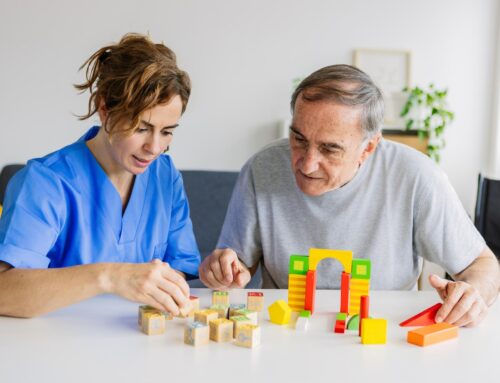The 7 Stages of Dementia
Table of Contents

Dementia affects millions of seniors and their families, presenting emotional and practical challenges. Recognizing the stages of dementia allows families to pursue the right care at the right time. Learning about the seven stages and associated symptoms helps families make proactive choices about memory care and other supportive options. CarePartners Senior Living is dedicated to guiding families along this journey with knowledge and compassion.
Overview of Dementia and Its Progression
Dementia refers to a significant decline in cognitive abilities that disrupts daily life. It includes symptoms such as memory loss, difficulty with reasoning, and behavioral changes. This condition progresses over time, impacting not just those diagnosed but also their families who provide care. Detecting dementia early is pivotal for effective planning and management. Knowing how dementia evolves helps families make informed choices about care and interventions, aiming to preserve the quality of life for as long as possible.
What Are the Seven Stages of Dementia?
The seven stages of dementia serve as a roadmap, helping families and caregivers anticipate changes and prepare for future care needs. Each stage presents specific symptoms and challenges, signaling when it may be beneficial to seek additional support or consider options like memory care. By understanding the progression of dementia, families can approach each stage with clarity and readiness, ensuring that their loved ones receive appropriate care as needs evolve.
Stage 1: No Impairment
In this initial stage, individuals show no obvious signs of dementia. Cognitive functions remain normal, and daily life continues without disruption. Often, only medical tests can detect any subtle brain changes.
Stage 2: Very Mild Cognitive Decline
At this point, slight forgetfulness or occasional memory lapses may occur, often mistaken for typical aging. You must closely monitor these signs, as they might signal early dementia.
Stage 3: Mild Cognitive Decline
Family and friends may notice increased forgetfulness, trouble concentrating, and difficulty organizing tasks. A medical evaluation is beneficial now to confirm dementia and start planning for future care.
Stage 4: Moderate Cognitive Decline
Symptoms become more evident, with challenges in managing finances or recalling personal history. Daily activities need more support, and families might start considering additional care options.
Stage 5: Moderately Severe Cognitive Decline
Memory gaps widen, and help is needed with daily tasks like dressing and bathing. Confusion about time or place can occur, making increased supervision essential for safety.
Stage 6: Severe Cognitive Decline
Caregivers face significant challenges as individuals lose awareness of their surroundings and experience severe memory loss. Communication becomes difficult, and personality changes may arise, necessitating comprehensive care solutions.
Stage 7: Very Severe Cognitive Decline
In the final stage, individuals require full-time care as they lose the ability to respond to their environment. Physical abilities decline, often affecting swallowing and movement. Memory care facilities provide specialized care to ensure comfort and dignity.
When to Transition to a Memory Care Facility
The progression to severe cognitive decline varies from person to person and can depend on several factors, including the type of dementia, overall health, and the level of care provided. On average, it may take several years for a senior to reach this stage, with symptoms gradually worsening over time. As the condition advances, families should remain vigilant and consider professional advice to ensure their loved ones receive the necessary support and interventions.
Recognizing when memory care is needed is critical. Signs include safety concerns, caregiver burnout, and unmet care needs at home. Memory care communities offer tailored support and a secure environment, easing the caregiving burden for families.
Get Dementia Care From CarePartners Senior Living
Identifying dementia stages is paramount to planning appropriate care. As the condition progresses, specialized support becomes necessary. Exploring memory care options ensures your loved one receives the best care tailored to their needs. For more information, contact us at CarePartners Senior Living.
Image Source: PeopleImages.com – Yuri A/Shutterstock



